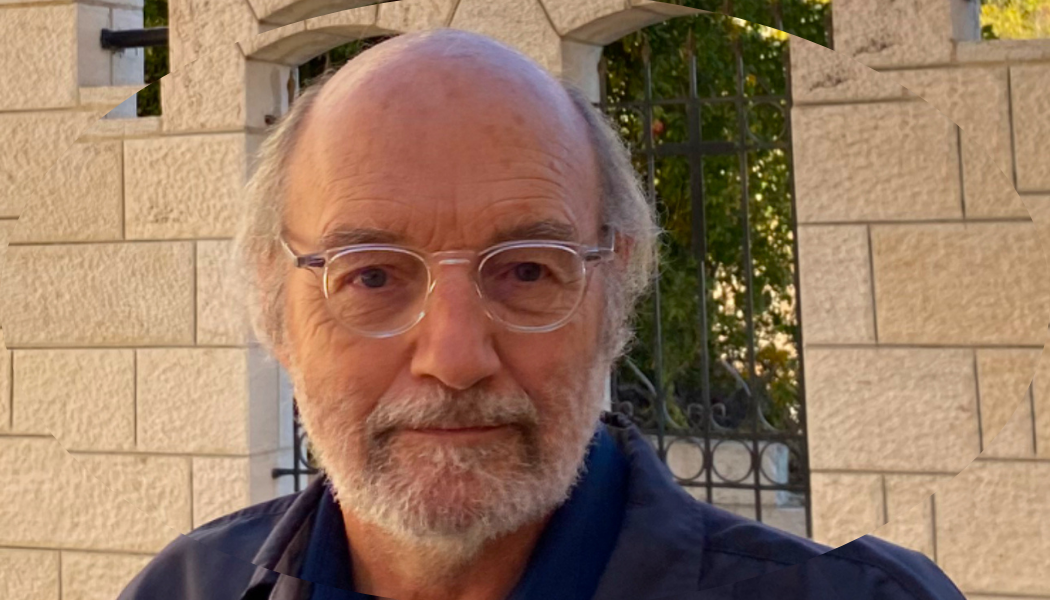Day 10: In this gruesome time
A grim day, from Jerusalem to Nablus in the West Bank, meeting people in great pain.
We began in East Jerusalem at the walled and razor-wired compound of UNRWA, the United Nations agency trying to meet the needs of refugees in the West Bank and Gaza, and in Lebanon, Syria, and Jordan where another two million Palestinians live as refugees. You enter UNRWA through massive metal gates, and cross a spike barrier, where guards check for guns (though not if you’re on a bus from Sabeel). Several times armed arsonist settlers have attacked the compound, incited by Israeli government policy, which has banned UNRWA from Israel, the West Bank and Gaza as of January 2025. UNRWA’s bank account is frozen. Staff visas have not been renewed.
The intended result of Israel’s latest assault on UNRWA: the massively increased suffering of displaced Palestinians. In the West Bank, UNRWA has been providing healthcare, schooling for young people, basic food-baskets for the poorest of the poor. Very soon, it will no longer be able to provide these essential services. The UNRWA officer also briefed us on the situation in Gaza, which is even more desperate. Soldiers expressly target UNRWA health personnel, teachers and emergency aid workers. Armoured bulldozers destroy schools while traumatized children watch. Planes and artillery have bombed almost all of the hospitals and clinics. Israel blocks food deliveries, while mobs loot the few food trucks that get in. People are starving.
The exhausted UNRWA program officer who briefed us was grateful. “It means a lot,” she said, “that you came all this way to meet us and hear us.”
Candace, “Samaritan woman of the day,” turning the handle to raise the bucket of Jacob’s water for us all to share.
We drove north through the West Bank to Nablus to meet Father Jameel, the priest of the Good Shepherd Anglican Church. Twice in the last few weeks settler vandals have broken down their doors. Less than 500 Christians still live in Nablus. More are leaving soon. Settlements ring the entire city, and checkpoints blockade all seven roads leading in. People outside Nablus can’t get in to buy what they need. They can’t get to hospitals.
We talked with students at Al Najaf, the largest university in Palestine. Students living outside of Nablus must pass checkpoint blockades. Often, they’re late for class, or can’t get there at all. Last Wednesday a student was shot and killed at a checkpoint. Two young women we met, Leen and Lara, told us most social media are forbidden. Soldiers search their phones. Before they reach the checkpoint, young Palestinians delete those apps—and then of course re-download them. Leen is learning health-care research, Lara is studying law. They don’t know what their future may be in such a place.
Grim, yes. But then there was Eustinus, Archimandrite of the Orthodox Church of Jacob’s Well, built on what believers say is the site where Jesus met the Samaritan woman in John 4. (About three hundred Samaritans still live above Nablus on their sacred mountain.) Eustinus is over 80 years old, and for 44 years has tirelessly guarded the well and its setting. An illegal Israeli settler with an axe hacked his predecessor to death and tossed a grenade into the sanctuary. Right across the road is the refugee camp of Balata, established in 1950 and now crowded with over 30,000 Palestinians.
Almost single-handedly for the past ten years, Eustinus has restored the massive church, parts of which date to the time of the Byzantines. He has functioned as engineer, contractor, fundraiser and iconographer. Candles, chandeliers, mosaics and fabulous icons adorn the sanctuary. His work continues; scaffolding still rises above the church front door. At the well on the church’s lowest level he summoned Candace, a woman from our group, to be Samaritan woman of the day and turn the handle to raise the bucket of Jacob’s water for us all to share. He sprinkled us with more holy water.
We left, momentarily refreshed, comforted and inspired, to know that in this gruesome time in Palestine so many persons of faith and courage like Eustinus can live out such steadfast kindness and creativity.
*About the author
Bill Butt is retired after writing for CBC Television, teaching at Western University in London, Ontario, and thirteen years as Overseas Personnel for the United Church of Canada, based primarily in Angola and Mozambique. He is a member of the CFOS Communications Committee. Along with a dozen other Canadians, he participated in a Solidarity Pilgrimage, November 11-21, 2024, hosted by Sabeel Ecumenical Liberation Theology Center in Jerusalem. Each day of the pilgrimage, he wrote about his personal experience.


